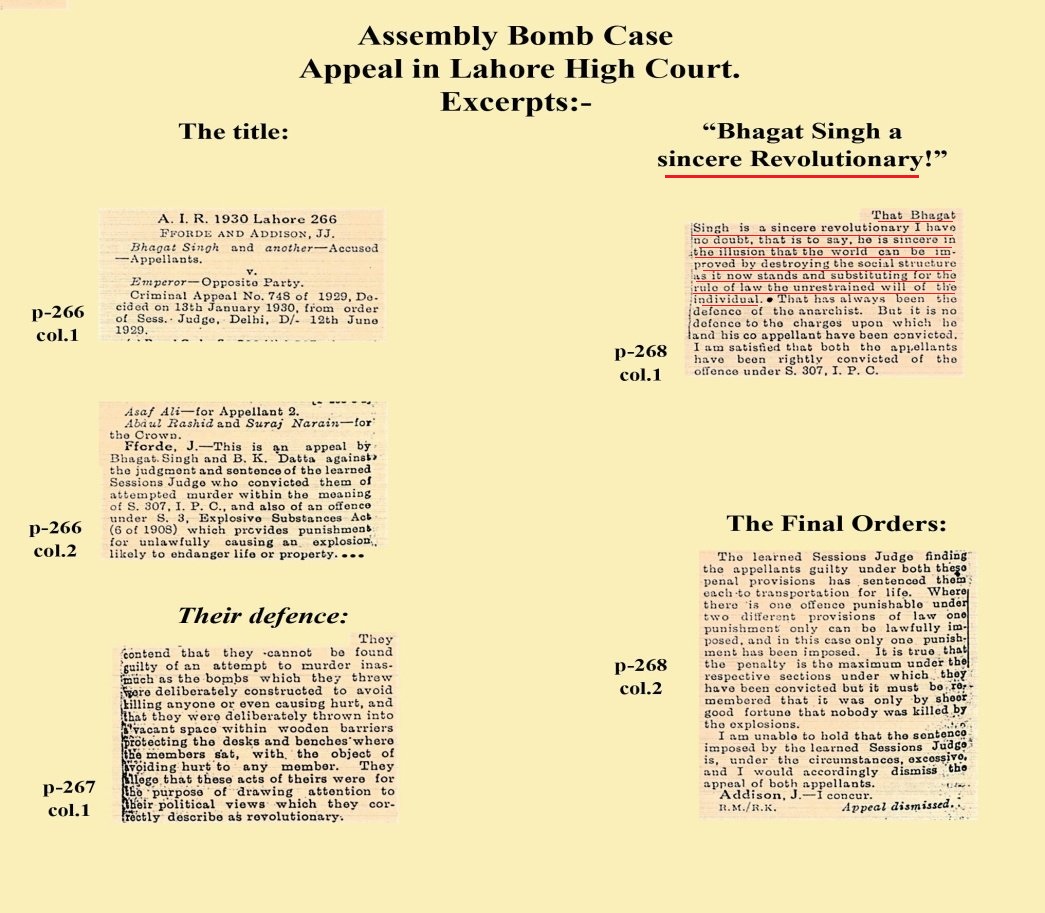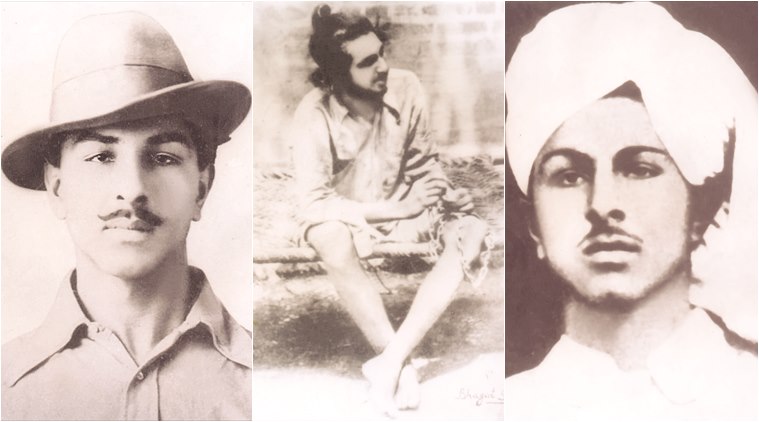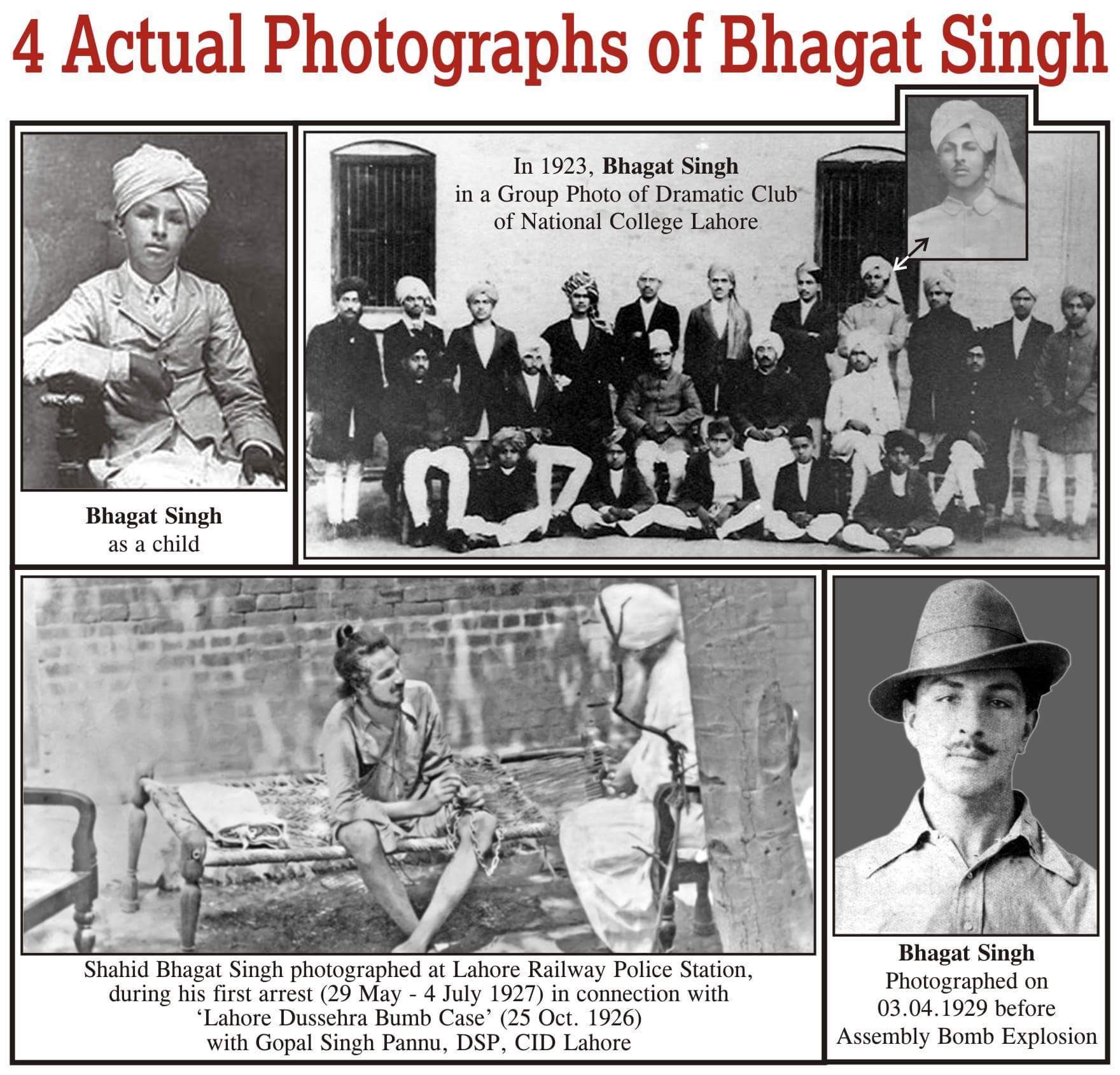There is no doubt that Bhagat Singh is one of the most celebrated martyrs of the Indian freedom struggle. He has left behind a legacy that everyone wants to appropriate, yet most do not wish to look beyond the romantic image of a gun-toting young nationalist. Perhaps the reason is that this is the image that was created in the official colonial records partially, an image we inherited and conveniently accepted as truth.
“Bhagat Singh is a sincere revolutionary, I have no doubt, that is to say, he is sincere in the illusion that the world can be improved by destroying the social structure as it now stands…” these were the words of the judgment of the assembly bomb case. This statement stands as an exception in describing Bhagat Singh’ factual image.

As 28th September marks the birth anniversary of Shaheed-e-Azam Bhagat Singh, the critical sociopolitical aspects of the revolutionary thinker who envisioned the nation’s liberation based on universal brotherhood and equality deserve a deep recall. The young revolutionary had an attractive blend of intellectuality and activism. His upbringing in a family of freedom fighters instilled a feeling of self-sacrifice during in childhood days itself. Attaining education from the National college of Lahore made his ground to enter the battlefield of ideas. Very early in life, he proved pen to be mightier than the sword as he constantly wrote for newspapers like Pratap, Kirti, etc against the British raj and on burning issues of society. Based on intricate observation, his hobbies and habits of everyday life is one of the most meaningful side of his character. He possessed every single trait what we as common man have in us like being a theatre activist, a brilliant swimmer, keeping craze for English movies such “Uncles Tom Cabin” which was based on slavery system; his affinity towards poetry is traceable through his jail note book; even his love for “Rasgollahs” which was send to him from Bengal was evident through court proceedings. His intellectual hunger was much more than any of his other physical needs. The revolutionary passion in him made him different and unique from common man and all revolutionaries. But this gives us no reason to refrain from becoming like him. His personality and perception genuinely has an aura to which gets connected to all of us. To understand Bhagat Singh his association with his comrades remains an important aspect to conquer. His politics became very clear through increasing understanding of the then world affairs and national events. Along with his comrades, he garnered deep inspiration from the Russian revolution of 1917 which was traceable through many of their court statements, letters but one among them was a prominent proof i.e. the “Telegram to Moscow” on death anniversary of V.I.Lenin, the architect and leader of the Russian revolution, dated 21st January 1930 which said,
“ON LENIN DAY WE SEND HEARTY GREETINGS TO ALL who are doing something for carrying forward the ideas of the great Lenin. We wish success to the great experiment Russia is carrying out. We join our voice to that of the international working class movement. The proletariat will win. Capitalism will be defeated. Death to Imperialism”. Bhagat Singh then read the text of this telegram in the court and asked the magistrate to send it to the Third International.
Beyond activism, characterization of Indian society and aspiration to cure its social illness became a priority for this young revolutionary thinker. In a span of seven years of his active sociopolitical life, he constantly wrote on most distressful issues of society. Broadly his concern could be categorized as- Casteism with Class oppression; Communalism and Economic Inequality.
- CASTEISM AND CLASS OPPRESSION– During the British colonial rule, Bhagat Singh took a firm stand beyond imperial atrocities. This was targeted on caste discrimination and class oppression. Bhagat Singh wrote an article for the newspaper Kirti under the pen name Vidhrohi in June 1928 named ‘Acchoot Ka Sawaal,’ in which he clearly said, “we are animatedly engaged in a debate whether or not the untouchables are entitled for a sacred thread? Are they allowed to read the Vedas? We whine that some foreign countries do not respect us and the British do not give us equal status. Do we have a right to bemoan all this?” Existing caste-based discrimination proves relevance of concern of Bhagat Singh on untouchability which hangs our head in shame. Even during last days in prison, he urged the jail sweeper to serve him with a meal. This request came as a surprise for sweeper who belonged to low caste keeping human race above caste identity.
Shielding the class interest of the working class people, he bombarded the central assembly hall with two harmless bombs along with Batukeshwar Dutt on 8th April 1929. This violent gesture was against the passage of Trade Disputes Bill and Public Safety Bill framed by the colonial rulers to crush rights of workers and liberty of citizens. This act symbolizes his matured understanding of workers of society against class oppression. Class consciousness was the aim he thrived for. In historic court statement of 6th June 1929, Bhagat Singh and Batukeshwar Dutt declared:
“By “Revolution” we mean that the present order of things, which is based on manifest injustice, must change. Producers or labourers, in spite of being the most necessary element of their labour and deprived of their elementary rights.”
- STAND AGAINST COMMUNALISM– Bhagat Singh wrote extensively on social issues, one among them was – Sampardayik dange aur unka elaj, that first came in print in “Kirti” in 1927. Bhagat Singh in 1920’s acknowledged the birth of organizations like RSS and Tablighi Jamaat with Hindutva extremism and Muslim fundamentalism. Both had a three-dimensional polarizing aim – first, on society with its people, second on the political leadership and third on the Hindi and Urdu press of the times. An excerpt from his writing said- At the moment, political leaders of India are conducting themselves so shamelessly. Those very leaders, who had sweared and vowed to liberate the country and had proclaimed of undertaking the great responsibility for that purpose, never tiring of talking about ‘common nationality’ and who had been vociferous in declaring their faith in the attainment of “Swaraj”, so unflinchingly and devotedly in the past, these very same leaders are now either keeping mum with their heads bowed in shame or are swaying along with the raging wind of blind religious bigotry. As solution to Communal riots he wrote “Now, if at all there is a cure for all the riots, then it can be brought about only by changing the course of direction of nation’s economic trajectory…but, it is difficult to bring about a change in the current economic conditions…That is why people have to consistently fight the government and until the government is changed, they should not rest. Class consciousness is required to ensure that people do not fight among themselves. It has to be made very clear to the poor, working class and peasants that their real enemy is capitalism. That is why they have to safeguard themselves from its stranglehold. The rights of all the poor – be they of any caste, colour, religion or region – are the same. Your wellbeing is in overcoming all these differences and remaining united, and strive to take the reigns of power into your hands. With these efforts, you will lose nothing; with these efforts, one day your chains will get cut and you will have economic independence.
- THE CAUTION ON ECONOMIC INEQUALITY– Bhagat Singh was among pioneer thinkers to be vocal on inequalities of both social and economic nature. In the manifesto of Naujawan Bharat Sabha which was a masterpiece work of Bhagwati Charan Vohra and Bhagat Singh, clearly stated- “The future program of preparing the country will begin with the motto: “Revolution by the masses and for the masses. In other words, Swaraj for the 90%; Swaraj not only attained by the masses but also for the masses. This is a very difficult task. Thought our leaders have offered many suggestions, none had the courage to put forward and carry out successfully and concrete scheme of awakening the masses”. These words are most relevant in times when the recent “World Economic Inequality” report by Thomas Piketty and Lucas Chancel comparing India’s inequality trajectory with other emerging, industrialized and low-income countries. The research said, “Top 1% of earners captured less than 21% of total income in the 1930s, which dropped to 6% in the ’80s and has risen to 22%”. This doesn’t stop here- even the latest survey by Oxfam India shows the richest 1% in India cornered 73% of the wealth generated in the country last year, presenting a worrying picture of rising income inequality. The caution on economic inequality through Naujawan Bharat Sabha’s manifesto and Bhagat Singh on establishing Swaraj for 90% remains unfulfilled as growing inequality is now a big threat to India’s democratic republic and implicit social contract upon which modern India was formed. Today’s staggering numbers of inequality show us to what extent Bhagat Singh and his comrades were accurate on economic inequality as a potential threat.
A SACRIFICE FOR AN EGALITARIAN INDIA– Before Bhagat Singh, the aim of revolutionaries was only the freedom of the country. Till then the purpose of this freedom was not clear. The revolutionaries were not clear about who would form the government after independence and what would be the shape of the future society and other such questions. It was Bhagat Singh, who first of all raised these issues among the revolutionaries and put forward socialism as the goal for which the Indian society should strive. The purpose of freedom was never just to replace the “English Viceroy” by some “Indian Occupant” where exploitation of man by man in our society must stop. His daring gestures took attention of E.V.Ramasamy Periyar, a colossal social thinker and activist of Tamil Nadu, who later admired visionary efforts of Bhagat Singh and undertook to translate his auto-biographical note “Why I am an atheist?” and published it into Tamil in a newspaper named “Kiadarsu”. Bhagat Singh’s intellectual legacy needs to be remembered in these acrimonious times when the danger of inequality, communalism, with caste and gender based discrimination, are the globe. Recalling words of Indian scholar Prof. Chaman Lal, the researcher on life and times of revolutionary Bhagat Singh said, “Bhagat Singh’s intellectual bent of mind was one of the major reasons for his execution, as the British feared that he would become the “Lenin of Asia”. Bhagat Singh should be considered as a “Visionary Frontier of Freedom Movement” who possessed both intellect and activism with four remarkable strands of thought –
a). Uncompromising struggle against imperialism;
b). Unflinching resistance to communalism and caste oppression;
c). Unbending opposition to bourgeois-landlord rule and
d). Unshakable faith in Marxism and Socialism as the only alternative before society.
Unfortunately, contemporary India is facing threats of communal riots, caste-based violence and economic inequality of worst order. Rising hate among population with diverse identity is now a day to day affair on which politics of the ruling class is based. The visceral animosity of divide and rule politics is what haunts us. But at last, we need to decide, whether we want to overcome these threats to our syncretic culture or not? Just garlanding and remembering Bhagat Singh will not work until and unless we understand and practice his vision of inclusive and egalitarian India, safeguarding ourselves from tools of destruction. Doing this will be the real tribute to his sacrifice.



















